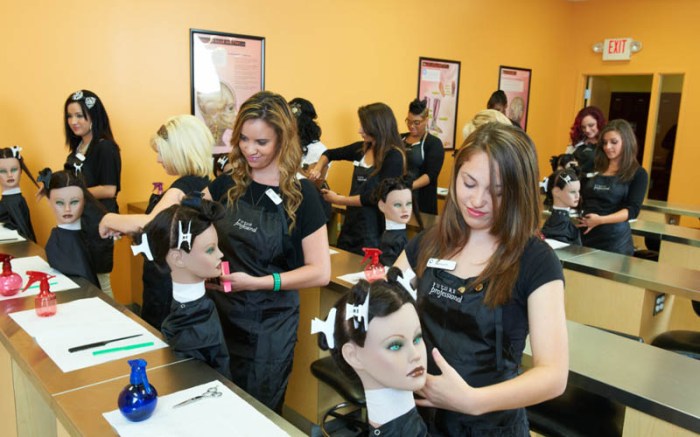Welcome to the State Board of Cosmetology ND, where beauty meets regulation! This comprehensive guide will take you on a journey through the world of cosmetology licensing, industry trends, and public resources. Get ready to dive into the glamorous world of hair, nails, and skincare, all while ensuring the highest standards of safety and professionalism.
As the governing body for cosmetology in North Dakota, the State Board of Cosmetology ND plays a crucial role in shaping the industry. From setting licensing requirements to enforcing ethical conduct, the board ensures that cosmetologists provide exceptional services to the public while adhering to the highest standards.
State Board of Cosmetology ND
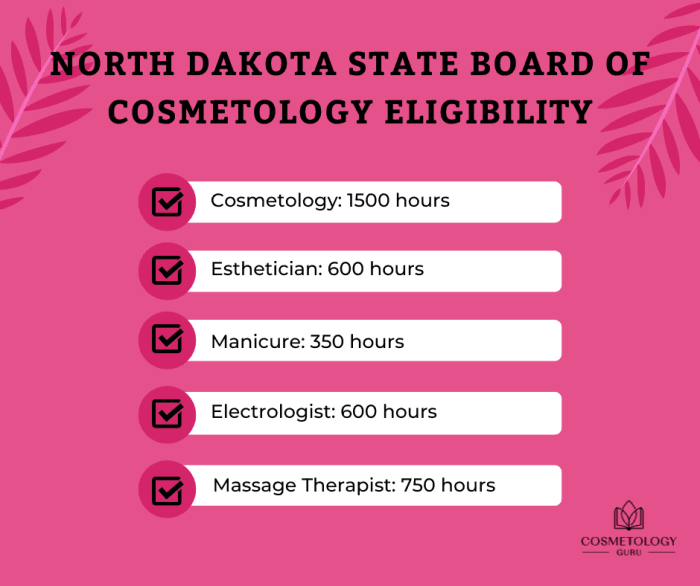
The State Board of Cosmetology in North Dakota is a regulatory body responsible for overseeing the cosmetology industry within the state. It is dedicated to protecting the public by ensuring that cosmetologists meet the necessary standards of education, training, and experience.
Purpose and Mission
The primary purpose of the State Board of Cosmetology is to regulate the practice of cosmetology in North Dakota. Its mission is to ensure that cosmetologists provide safe and competent services to the public. The board achieves this by establishing and enforcing standards for cosmetology education, licensing, and practice.
Regulatory Role
The State Board of Cosmetology plays a crucial regulatory role in the cosmetology industry. Its responsibilities include:
- Establishing and enforcing standards for cosmetology education programs
- Licensing cosmetologists and beauty salons
- Inspecting beauty salons to ensure compliance with regulations
- Investigating complaints against cosmetologists
- Disciplining cosmetologists who violate regulations
Licensing and Regulations

In North Dakota, obtaining a cosmetology license is essential for individuals seeking to practice cosmetology professionally. The North Dakota State Board of Cosmetology establishes and enforces the licensing requirements to ensure the competence and safety of cosmetology professionals within the state.
To obtain a cosmetology license in North Dakota, individuals must meet specific eligibility criteria, undergo a comprehensive application process, and successfully pass a state-administered examination.
Application Process
The application process for a cosmetology license in North Dakota involves submitting an online application to the State Board of Cosmetology. Applicants must provide personal information, educational background, and relevant experience, along with the required application fee.
The State Board of Cosmetology ND regulates the practice of cosmetology, which involves the use of various tools and techniques, including lasers. Lasers often employ noble gases like helium-neon or argon to generate the precise beams of light necessary for cosmetic procedures.
Understanding the principles behind these technologies is crucial for cosmetology professionals seeking licensure from the State Board of Cosmetology ND.
To be eligible for a cosmetology license, applicants must have completed a state-approved cosmetology program and obtained at least 1,500 hours of training.
Examination Details
Once the application is approved, applicants must schedule and pass a written and practical examination administered by the State Board of Cosmetology. The written examination covers topics such as cosmetology theory, sanitation, and safety, while the practical examination assesses the applicant’s technical skills in cosmetology.
Continuing Education Requirements, State board of cosmetology nd
Cosmetologists in North Dakota are required to complete continuing education hours to maintain their license. The State Board of Cosmetology mandates 12 hours of continuing education every two years, covering topics related to cosmetology practices, techniques, and safety.
License Renewal
Cosmetology licenses in North Dakota expire every two years. To renew their license, cosmetologists must submit a renewal application, provide proof of continuing education completion, and pay the required renewal fee.
Enforcement and Discipline: State Board Of Cosmetology Nd
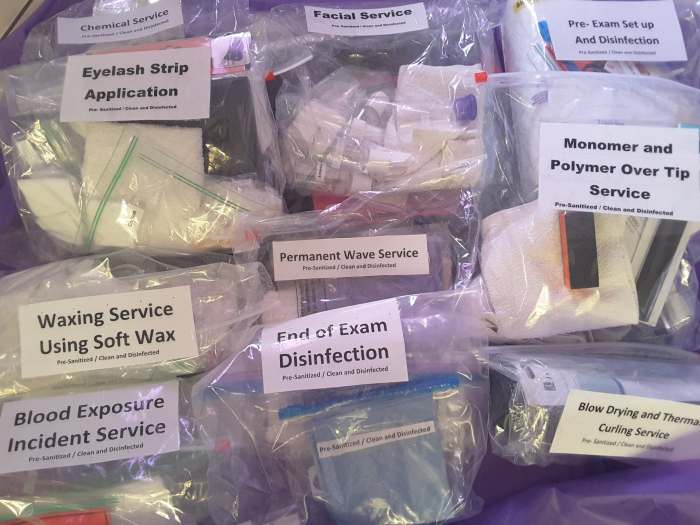
The State Board of Cosmetology takes proactive measures to enforce cosmetology laws and regulations. The board’s enforcement actions aim to protect consumers, maintain industry standards, and ensure public health and safety.
Investigations and Hearings
The board conducts thorough investigations into alleged violations of cosmetology laws. Investigations may include reviewing records, interviewing witnesses, and inspecting premises. If an investigation uncovers evidence of wrongdoing, the board may initiate disciplinary proceedings.Disciplinary hearings are formal proceedings where the board presents evidence against the licensee.
The licensee has the right to present evidence and defend themselves. The board makes a decision based on the evidence presented at the hearing.
Penalties
The board has the authority to impose a range of penalties for violations, including:
- Censure or reprimand
- Fines
- Suspension or revocation of license
The severity of the penalty depends on the nature of the violation and the licensee’s history of compliance.
Ethical Conduct and Professional Standards
Ethical conduct and adherence to professional standards are crucial in the cosmetology industry. The board expects licensees to maintain a high level of integrity and professionalism. This includes:
- Providing services in a safe and sanitary environment
- Using approved products and techniques
- Maintaining confidentiality of client information
- Treating clients with respect and dignity
By enforcing cosmetology laws and promoting ethical conduct, the State Board of Cosmetology helps to protect consumers and ensure the integrity of the cosmetology profession.
Industry Trends and Developments
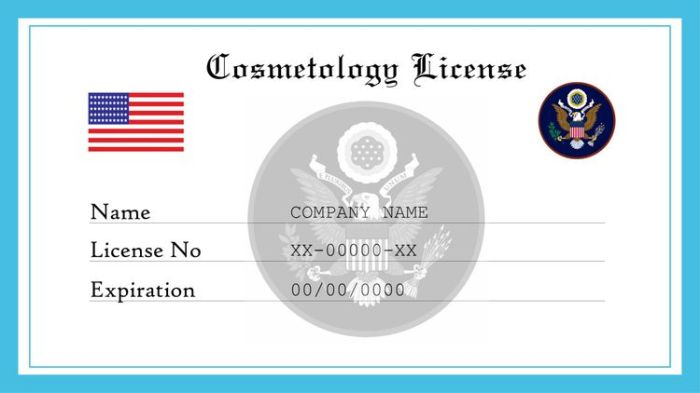
The cosmetology industry is constantly evolving, with new trends and advancements emerging all the time. These changes are driven by a number of factors, including technology, new products, and changing consumer preferences.
One of the most significant trends in recent years has been the rise of technology in the cosmetology industry. This has led to the development of new tools and techniques that make it easier for cosmetologists to provide high-quality services.
For example, laser hair removal and microdermabrasion are two popular treatments that would not be possible without the use of technology.
New products are also having a major impact on the cosmetology industry. The development of new hair care and skincare products is making it easier for consumers to achieve the look they want. For example, the popularity of keratin treatments has led to a surge in demand for smoothing and straightening services.
Changing consumer preferences are also driving change in the cosmetology industry. Consumers are increasingly looking for natural and organic products that are good for their hair and skin. This has led to a growing demand for services that use these types of products.
The State Board of Cosmetology plays an important role in fostering innovation and promoting industry growth. The Board sets standards for cosmetology education and licensing, and it also provides continuing education opportunities for cosmetologists. By ensuring that cosmetologists are up-to-date on the latest trends and techniques, the Board helps to ensure that consumers receive high-quality services.
Impact of Technology
- Development of new tools and techniques, such as laser hair removal and microdermabrasion.
- Improved efficiency and accuracy of services.
- Increased consumer satisfaction.
Impact of New Products
- Expansion of service offerings, such as keratin treatments and smoothing services.
- Improved hair and skin health.
- Increased consumer choice.
Impact of Changing Consumer Preferences
- Growing demand for natural and organic products.
- Increased focus on hair and skin health.
- Changing beauty standards.
Role of the State Board of Cosmetology
- Sets standards for cosmetology education and licensing.
- Provides continuing education opportunities for cosmetologists.
- Ensures that consumers receive high-quality services.
Public Resources and Education
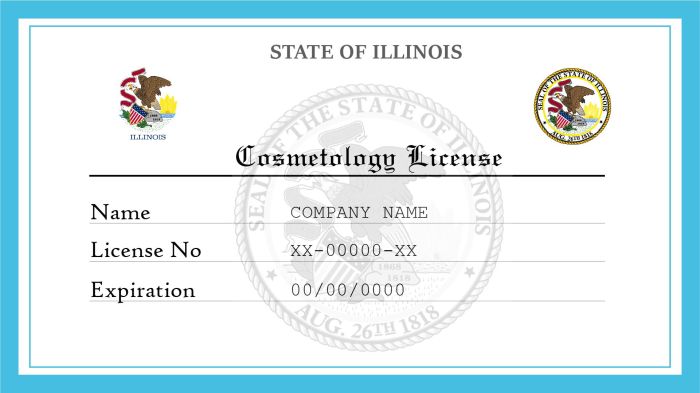
The State Board of Cosmetology is committed to providing public resources and education to protect consumers, handle complaints, and promote safe cosmetology practices.
The board offers a range of resources, including:
Consumer Protection
- Consumer complaint handling and investigation
- Guidance on selecting licensed and reputable cosmetologists
- Information on cosmetology laws and regulations
Complaint Handling
- Consumers can file complaints against licensed cosmetologists for unethical or unsafe practices
- The board investigates complaints and takes appropriate disciplinary action
- Consumers can find complaint forms and instructions on the board’s website
Public Outreach Programs
- The board conducts public outreach programs to educate the public about cosmetology practices and safety
- These programs include workshops, seminars, and online resources
- The board also collaborates with other organizations to promote consumer awareness
FAQ Guide
What are the licensing requirements for cosmetologists in North Dakota?
To obtain a cosmetology license in North Dakota, you must complete an approved cosmetology program, pass a written and practical exam, and meet the age and residency requirements.
How often do I need to renew my cosmetology license?
Cosmetology licenses in North Dakota expire every two years. You must complete continuing education requirements to renew your license.
What is the role of the State Board of Cosmetology ND in the cosmetology industry?
The State Board of Cosmetology ND regulates the cosmetology industry, sets licensing requirements, enforces ethical conduct, and promotes industry growth and innovation.
